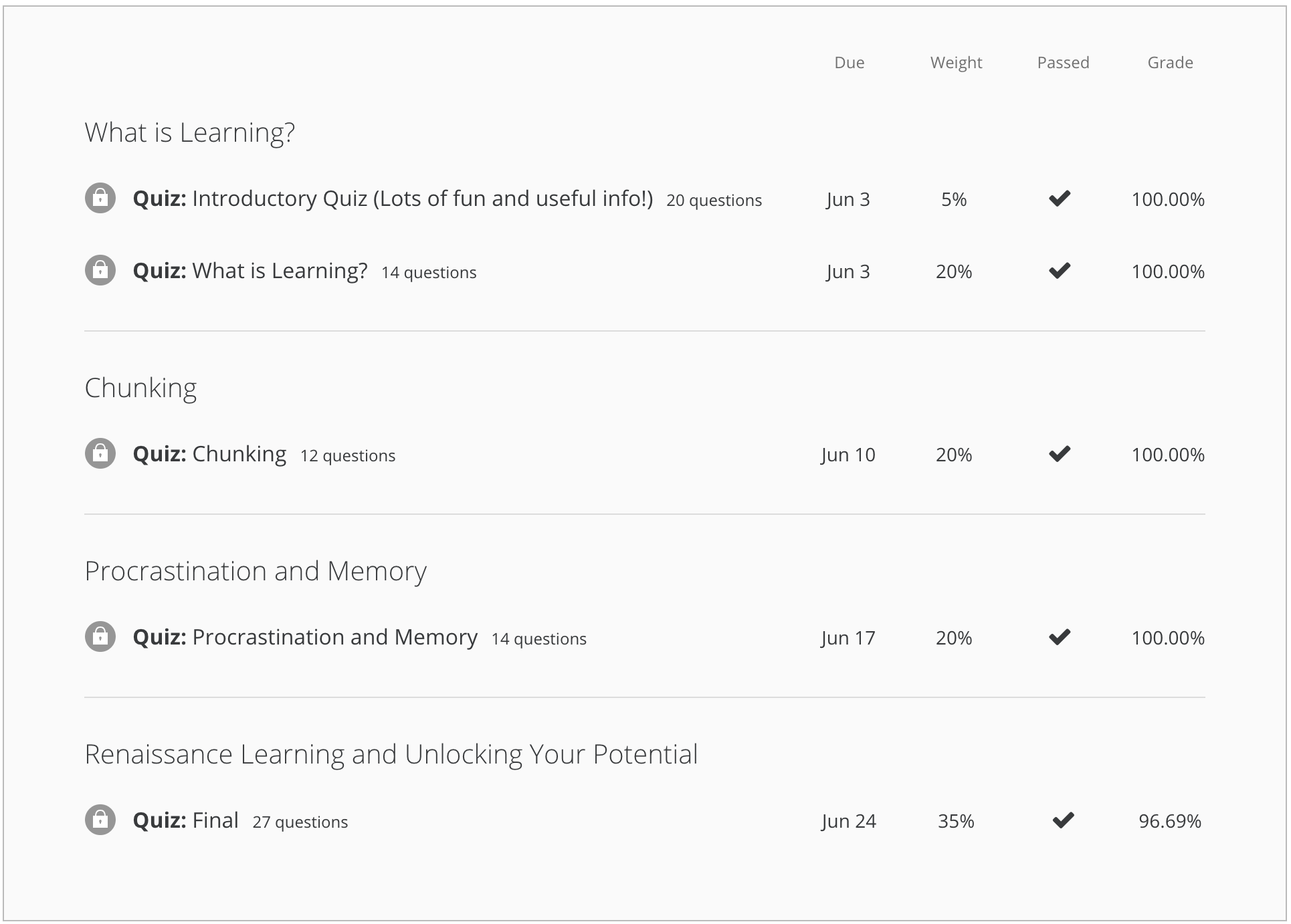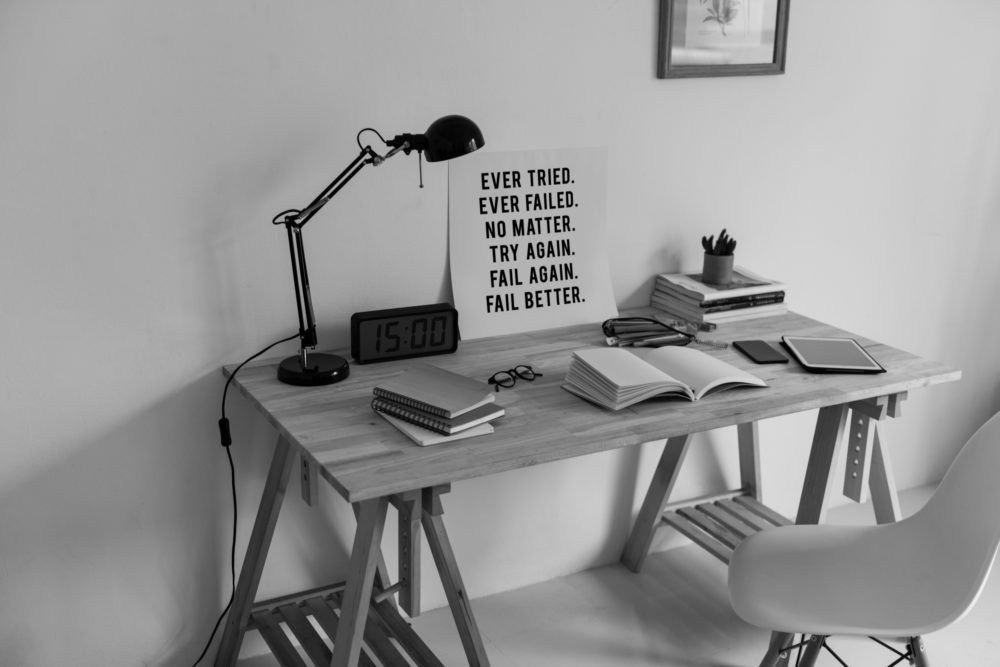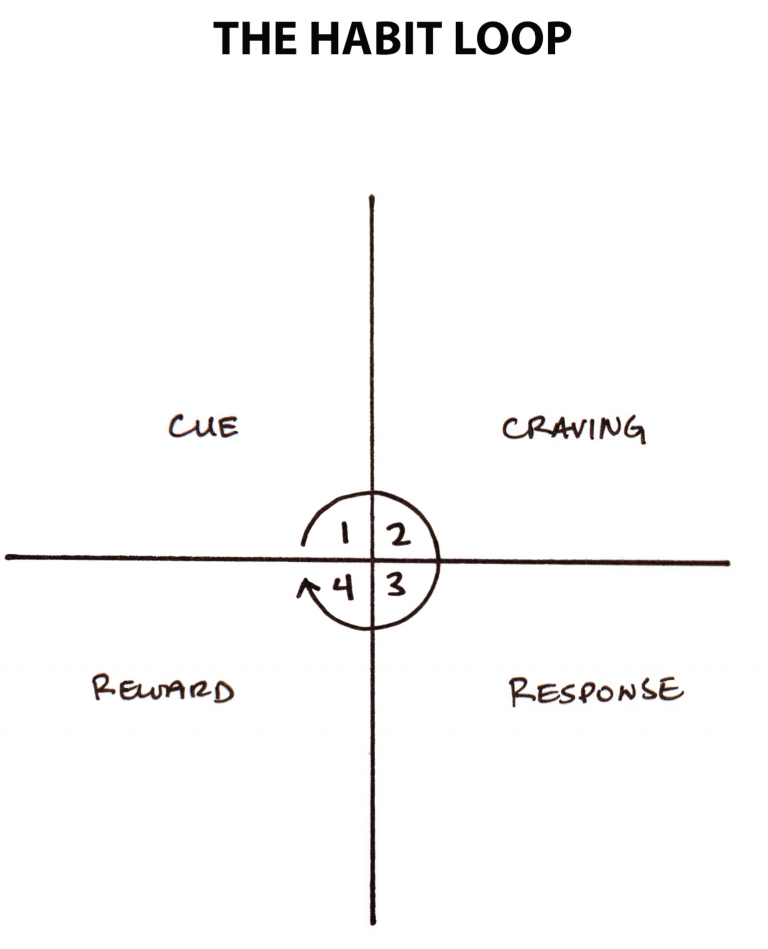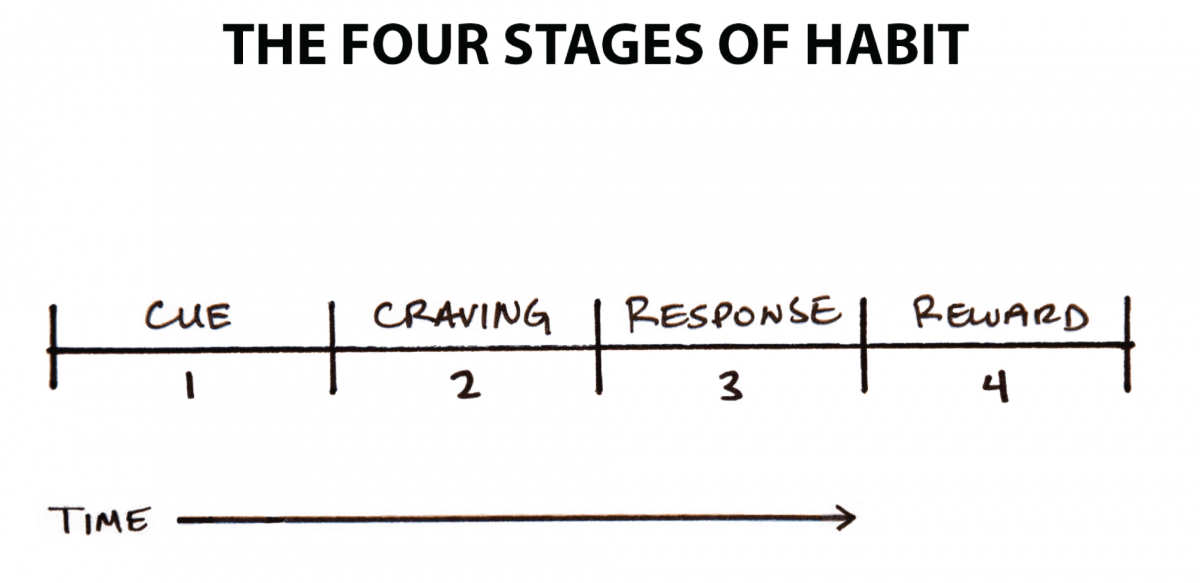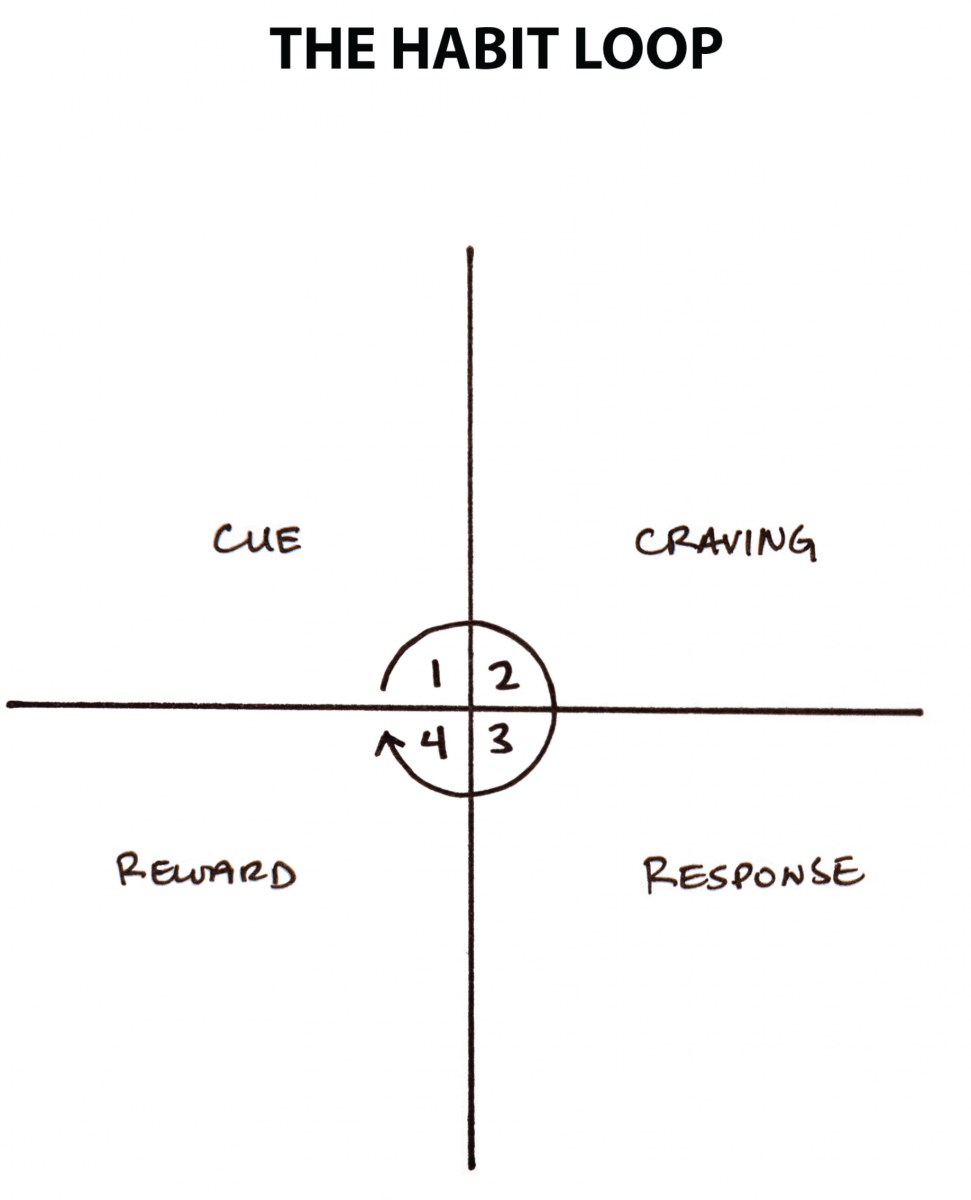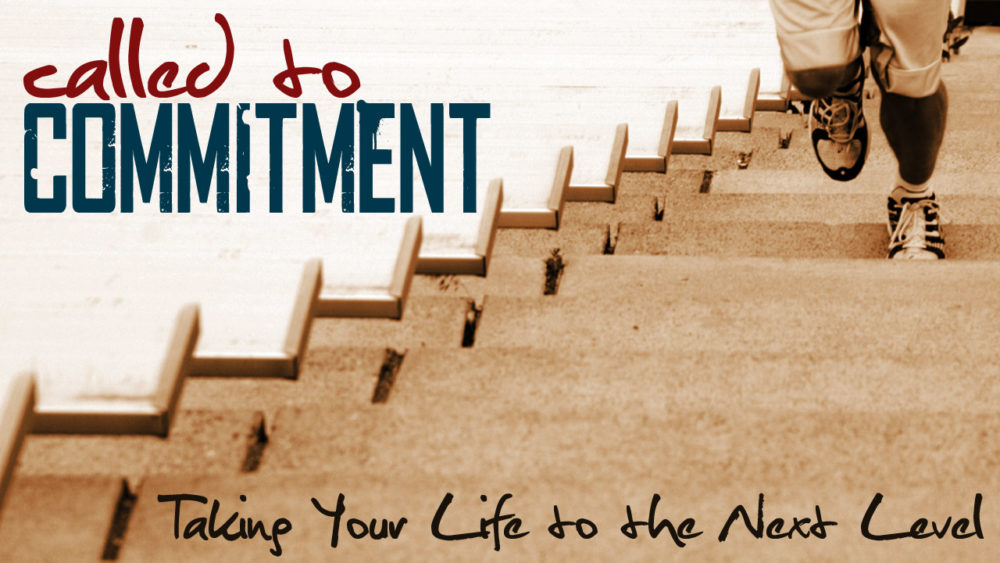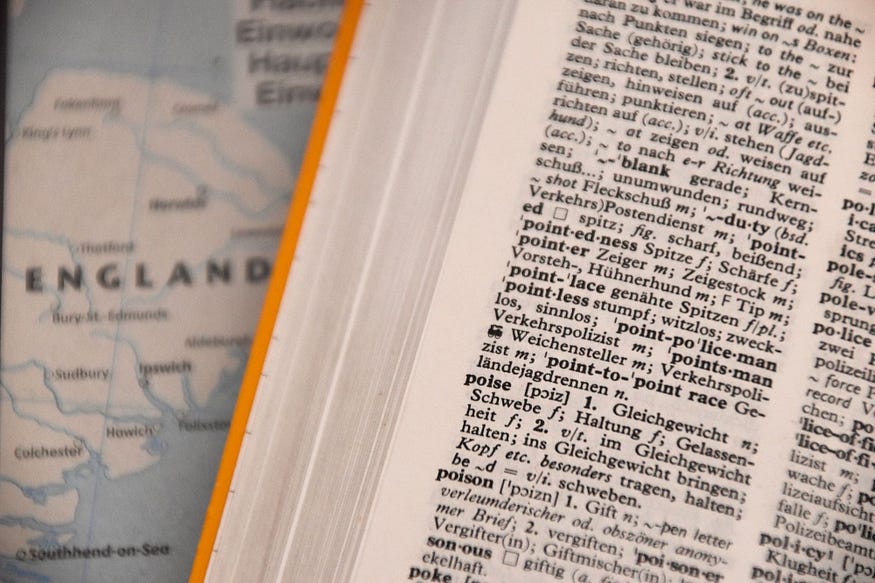8 hours? Are you kidding me? It takes 10,000 hours to learn a new skill!
Wrong!
10,000 hours of deliberate practice is the amount of time it takes to be a top performer in a highly competitive field, according to Malcolm Gladwell in his book, Outliers.
In the past 13 months, I’ve proven time and again that you can learn valuable soft and hard skills in about 15 to 20 hours of practice. And I’m talking about starting from nothing. I’ve learned 39 new skills in the past 13 months. But I’m not the only one who has experimented with that. My original inspiration came from Josh Kaufman’s TEDx talk, The First 20 Hours — How to Learn Anything.
Bill Gates, Jeff Bezos, Elon Musk, Warren Buffett, Barack Obama, Oprah, and many more top performers dedicate a lot of their time to learning a variety of skills that allowed them to be where they are today. All of them have achieved much because of what they’ve learned and what they know. They are not more intelligent, they just dedicate more of their time on learning most valuable skills.
I was very careful in choosing skills that are as applicable today as they will be 100 years from now. In fact, the skills that follow were useful or would have been useful thousands of years ago as well.
Each of these skills can be learned to a level in which you can be good enough in it in under 8 hours of practice — one full work day!
But be careful, practicing any skill for long hours will not yield the results you expect. Your brain doesn’t assimilate new knowledge that way.
The first skill in the list is the basis of every other skill you’re going to learn for the rest of your life. It’s no surprise then that I listed it as the #1 skill to learn to thrive in 2019 in my highest performing article yet.
Do you want to change your life forever?
Start with the following skills, in no particular order, with the exception of the first one:
- Learning to learn
- Writing
- Public speaking
- Meditation
- Forming good habits
- Negotiation
- Mathematical thinking
- Coordination and flexibility
![]()
1. Learning to Learn
When I started my journey to learning, I was slightly disorganized and didn’t fully understand what I was getting into. With practice, I understood the importance of knowing how our brain truly works. Today, learning anything new isn’t as hard as it used to be.
Just this month, I’m learning how to write a book in Spanish, composing epic music (starting from zero knowledge in music), developing backends in the Go language, and salsa dancing (again, starting from zero knowledge of dancing).
If that sounds overwhelming to you, it should, at least for now.
And it may seem to you that I’m spending 100% of my time learning these skills, but the truth is that I’m only just practicing 30 minutes each every day. In 15 hours of deliberate practice, I’ll be able to do each of these where I’ll be confident enough to say I’ve acquired a skill.
The reason I’m able to do that is that I’ve learned to learn. While that obviously comes with practice, here’s how you can do this too:
How do I learn it?
It would take a whole book to teach you how to learn to learn. To keep this article at a respectable length, I’ll refer you to this other story I wrote which details the keys aspects of learning to learn:
The first 8 hours:
Watch 30 minutes of the Learning to Learn class on 2x speed for 16 days.
How can it change my life?
Learning new skills increases your motivation, makes you more adaptable, relatable, interesting and helps you get better jobs and earn more money.
Just yesterday, I led a workshop where every member learned to create their own online store and made money on that very same day! Who would have thought that it’s something I would have taught someday in my life!
But it’s not just me. One of the most inspiring members of my SkillUp your Life program, Prithviraj, learned to swim and that led to him getting a new awesome job, greatly increasing his salary and improving the lives of his parents and other people surrounding him.
Read his most inspiring story here.
What are some resources I can use today?
Practical Techniques
The 30-second habit
The 5-hour rule
Resources
2. Writing
I never aimed to write. If you asked me just a year ago what I thought about writing, I’d tell you it’s not for me. I’m a programmer. I code and I love it.
But then in January of 2018, I decided that I should improve my writing skills, simply because it’s one of our most powerful method of communication and it’s valuable both in life and in business.
After 5 days of writing, I got published by The Startup. 23 days later, I became a top writer in 7 categories. I received incredible comments from my reader and really started to enjoy it.
I always meant to stop after 30 days of practice but with all the momentum I had going, I had to keep going. So here I am writing this piece 10 months after I wrote my first piece on Medium.com.
How do I learn it?
Like any skill, you learn by doing. But here’s a trick most people don’t do: write publicly.
You learn better when people can actually see your work. It forces you to dig deeper and do your very best. It gives you accountability. You get feedback from others and improved based on it.
Create a blog and publish regularly and consistently. Try publishing once a day on Medium, even when you’re not satisfied with your results. People don’t have to read it.
No need to write a crazy amount every day. Start small. MR. Molly Maguire started with one sentence a day and now writes complete blog posts.
The first 8 hours:
Write 300 words a day in 30–45 minutes in 12–16 days and publish on Medium.com or your own blog.
How can it change my life?
Writing helps you define your voice. It helps you get clarity on who you are and who you want to become.
Little did I know that my stories could inspire other people, yet for the past 10 months, I’ve been a top writer in inspiration, currently ranking #5.
Your story is your story alone. It has the power to change both your life and that of others.
You learn to become a better storyteller, which is a crucial skill both life and business.
What are some resources I can use today?
Free
Paid
A lot of what I know today about writing on Medium.com, I learned from these awesome writers: Dave Schools, Tom Kuegler and Anthony Moore.
3. Public Speaking
As a shy introvert, I’ve never really wanted to do any public speaking. In school, to get me out of the shyness, I’d act out some confidence in front of the class. It worked pretty well.
It’s actually a technique I still use. Whenever I do a presentation in front of an audience, I picture myself in the shoes of Tony Robbins.
Isn’t there anyone more comfortable in front of a large audience than Tony Robbins?
Before writing in January, I picked up Storytelling and Public Speaking as two of the skills I would practice for the month. Little did I know that both these skills would become valuable in my writing after.
How do I learn it?
Seek opportunities to speak in front of groups.
Start with people you’re comfortable with, like your friends and family. Talk about subjects you’re really passionate about. When you talk about things you love, around people you love, the nervousness doesn’t kick in.
Recognize that the first time you tell a story, it won’t be perfect. Take notes of people’s non-verbal reactions. Notice people’s interest level with each sentence you say.
Public speaking is all about refining your stories.
When ready, attend Toastmasters events. Do talks at your workplace. Do a TEDx talk. Sky’s the limit!
The first 8 hours:
Attend and participate in one 1–2 Toastmasters event (or similar) every week for 4–8 weeks.
How can it change my life?
In High Performance Habits, Brendon Burchard claims that confidence is a key ingredient in raising your clarity, necessity, energy, productivity, influence, and courage.
Nothing builds confidence more than doing a successful public speech.
Given that, the more you seek public speaking opportunities out, the more you can build your confidence.
On top of those benefits, you also improve your vocabulary and speak with greater clarity. People will understand you more when you speak.
I’ve definitely experienced the results explained by Burchard and his team by performing more public speeches, and so can you!
What are some resources I can use today?
Free
4. Meditating
Meditation is one of those skills, like drawing, that I thought I would never be able to learn.
The problem back then is that I didn’t think of meditation as a skill, meaning I didn’t think I could learn techniques to meditate well.
I had the preconception that meditation was about not thinking about anything, therefore any time I had a thought, it frustrated me.
And I know I’m not the only one who thought that way. But it’s wrong.
Back in September, I tried meditation with a friend in Cambodia and failed miserably. It took me 4 months after that attempt to finally give it a go again. Once I had the right mindset and I consistently practiced, I actually became good at it.
How do I learn it?
As a beginner, I strongly suggest guided meditation. I’ll list what has been most helpful for me in the resources section below.
What’s good about guided meditation is that it teaches you that it’s okay to have thoughts and guides you through a greater clarity of mind, which is what meditation really is about.
You learn to be aware of how your body and mind feel. You learn to relax, even when you feel like you’re too nervous to relax.
What’s important that a lot of people don’t realize is that it takes time to learn it. Don’t try once and leave. Meditate at least once a day for at least 10 minutes.
You’ll feel all types of emotions. In the beginning, I was bursting in laughter when instructed to count my breaths. Sometimes you’ll be frustrated. No matter the emotion, don’t let it go to your head. You have control over it. The more hours of practice you put it, the easier it gets.
It’s also important that you practice where you won’t be disturbed. And as a beginner, try where there isn’t too much ambient noise. Some people will tell you to sit to meditate but I started by laying in my bed, otherwise, I didn’t feel comfortable enough and concentrated on that.
So whichever pose they tell you to take, try it, but comfort is more important in my opinion, especially when learning.
The first 8 hours:
Do 20 minutes of Headspace a day for 24 days.
How can it change my life?
Here are some of the long-term benefits I got from learning to meditate:
I reduced the time it took me to fall asleep from 1–2 hours to 10–15 minutes. The quality of my sleep also tends to be better.
I’m not a stressful person, but I’ve seen a reduction of stress nonetheless. A lot of people report being much less stressed from doing meditation.
I have more clarity on my emotions, body, and mind, leading me to make better decisions.
And one I find really important but is often overlooked: I’m much faster at context switching. Most of us work on different projects at the same time, and switching from one context to another takes time. I reduce that time by doing a quick 5-minute meditation session.
Of course, you can expect similar results in your life when you stick to it.
What are some resources I can use today?
Free
UCLA’s Guided Meditations
Free (with paid options)
Headspace app
5. Forming Good Habits
Forming good habits is a powerful tool to increase your motivation for doing anything.
Forming bad habits, on the flip-side, can be extremely dangerous for your life.
By knowing how habits take form and how they work, you can better control what habits you form and get rid of habits that are detrimental to you.
How do I learn it?
The best way I’ve found to learn to keep your habits in check is to be accountable for your good or bad habits. Find one or multiple people that you report to on a regular basis. The more frequent the better.
Find someone you don’t know that much, or at all. They’re less likely to sugarcoat it for you and will be less lenient. Ideally, that someone would be working on the same habits.
Noticed how people tend to stick to the gym more when they go with someone else or take classes?
That’s accountability at work.
Habits, contrary to beliefs, are not located in the same area of your brain as your memories. Astonishingly, and consequently, people with learning disabilities can still form habits. That’s also how you can never truly unlearn to ride a bicycle.
The first 8 hours:
Find and report to an accountability partner every day. Spend 10 minutes exchanging and encouraging each other. Do that for at about 48 days.
How can it change my life?
I used to go straight to my video games after work, playing all evening and going to bed late. When I was only 15 years old, my older brother told me the following, after always seeing me play my Gameboy Advance on the couch every day:
“You’ll never do anything in life.”
I’m happy to prove him wrong now. Most of it started when I formed the good habit of practicing 3 skills every morning before starting work.
I’m now in the best physical shape I’ve ever been in my life, I eat healthier, workout almost every day, I learn something new on a daily basis, and I sleep much better.
As a result, I live a happier and more fulfilled life.
When your habits work in favour of taking care of your health, you start to see positive change in your life. You’re more motivated to get rid of the bad habits and become more driven.
What are some resources I can use today?
Free
The 30-Day Habit Challenge
Paid
Book: The Power of Habits
Accountability for Accountable People Program
Habit of the Month Club
6. Negotiating
Now, this is a skill I personally need to spend more time on.
I count Selling, Saying “yes” and Saying “no” as part of negotiating.
How often can you create win-win situations?
That’s what true negotiation is about. A negotiation where only one of two parties gets to win is not a negotiation, it’s a loss.
For centuries, people and organizations alike have thrived by mastering the art of negotiation. Without good negotiation skills, businesses stand no chance. It was true hundreds of years ago, and it’s even truer today and beyond.
Part of negotiating is learning to say “yes” or “no” to the right things. Check the resources section below for help on that.
How do I learn it?
The next time you think about a negotiation situation, think win-win. What most don’t realize is that we negotiate almost on a daily basis. A lot of our interaction with other people are about interacting.
Where to go for dinner? What to watch tonight? What mode of transportation to use?, etc.
Once you realize that negotiation is a skill and it needs practice, you’ll start to find many scenarios around you that are good practice. If you can’t think of any, simply search “practice negotiation skills” in your favourite search engine, there are tons of results!
The first 8 hours:
Prepare 8 case scenarios ranging from the workplace, romance, friend activities, haggling, business, etc. Find at least one person to practice each scenario with. Practice each scenario once a week for 15 minutes. Do that for four weeks.
How can it change my life?
If you are salaried, it will help you negotiate a better salary and benefits. You’ll also be able to negotiate to work on the most interesting projects for you.
If you are trying to find a job, you’ll know better what they are looking for and adapt to your interviewer.
In your romantic life, you’ll handle conflicts better, and likely have less of them too.
When haggling in markets, you’ll be able to get better deals.
In business, you’ll get more clients to say “yes” to you.
And probably the most important benefit is that it improves your confidence.
What are some resources I can use today?
Free
https://blog.blackswanltd.com
https://www.pon.harvard.edu/daily/negotiation-skills-daily
7. Mathematical Thinking
Back in university, I had a course about discrete mathematics. I hated it. Especially the logic part of it, which is strange considering I now call myself a logical person.
What I didn’t realize at the time was that it was one of the most formative courses of my life. I learned to think more logically and make better-informed decisions.
And it’s not only discrete mathematics but many other branches of maths develop your analytical and reasoning skills. What at the time seemed like a skill I would not ever use turned out to be a great exercise to develop other parts of my brain.
While I may not use algebra or calculus frequently, the logical mindset I developed through it changed many aspects of my life.
How do I learn it?
Learning mathematical thinking is basically the same as what you do in school, you practice sample problems. The difference now is that no one is forcing you to do it, plus you are aware of the real-world benefits of doing it (see below).
There are tons of resources on the subject but the free resources I listed below should be enough to get you started.
The first 8 hours:
Do the exercises in chapter 2 of this Exercise Booklet: http://disi.unitn.it/~ldkr/ml2014/ExercisesBooklet.pdf. Go from trivial to easy. After 8 hours, you should be able to do Medium problems.
How can it change my life?
The main benefit is to increase your analytical and reasoning skills. This will help you make better-informed decisions, including during negotiation scenarios.
You’ll run businesses more efficiently. You’ll be a better manager. You’ll make more money because you’ll know how to manage it better.
You’ll be more productive simply by knowing how to better analyze your time.
What are some resources I can use today?
Free
http://disi.unitn.it/~ldkr/ml2014/ExercisesBooklet.pdf
http://www.math.toronto.edu/preparing-for-calculus/3_logic/logic.html
https://www.khanacademy.org
8. Coordination and Flexibility
Most of the other skills on my list are intellectual skills but it’s not to say that physical skills are not useful.
In fact, having coordination and flexibility is one of the most important parts of living a healthy life. And without being healthy, it’s hard to even think about the skills above.
Back when I was in Spain, journaling from the beach, I met this incredibly fit guy doing stretches. I thought to myself, maybe he would have some tips for me to get fit like he. He was, after all, working intensively on my physical shape back then.
His secret was not what I expected. He didn’t even work out or eat tons of protein. He was just stretching every day and he was a vegan.
How do I learn it?
He showed me some tricks, which are really hard to explain in text. Check the resources section below for sample stretching exercises. They’re really advanced, but if you do them every day as he did, you’ll notice you’ll get much better at them in a short period of time.
And what’s great about these stretches is that they can be done from anywhere and require no equipment, or minimal equipment.
The first 8 hours:
Option A: Home Stretching
Practice one of the stretching exercises in the resources below for 15 minutes every day for 24 days.
Option B: Yin Yoga
Do 8 sessions of 1 hour of practice at a yoga studio or practice at home for 30 minutes over the course of 16 days.
How can it change my life?
This skill will open the doors to more physical activities. The more coordination and flexibility you have, the easier it will be to perform at any sport or physical activity. I’m no cardiac expert but I’m sure it helps with blood circulation too.
“Having an increase in blood flow and circulation to areas of your body helps promote cell growth and organ function. Your skin also benefits from an increase in blood circulation. Healthy skin is better able to fight off bacteria and infection that it may come in contact with. When your heart pumps at full force, your heart rate lowers, heart muscles relax and your blood pressure flows evenly and smoothly.” — benefits-blood-circulation-katharine-jensen-kjensifyme-healthy
What are some resources I can use today?
Stretching
No equipment:
Basic
Advanced
Advanced, with video (this is more similar to what I was doing)
Yin Yoga
Paid (with free trial)
![]()
Conclusion
8 timeless skills.
8 hours each.
That’s only 64 hours that will change the rest of your life forever.
Not only will you be more skilled, but you’ll also be equipped to learn anything new much faster. You’ll be more adaptable. You’ll make better-informed decisions. You’ll be in better physical health. And more!
Even if it’s only 64 hours, take your time. Learn one a month. Practice every day, if only for a short period of time.
We all say we’re so busy, but everyone can squeeze in 15–30 minutes of practice a day. The consistency and repetition will make it a habit and it will be so much easier to learn them.
Are you ready to change your life for the better? Not only temporarily, but for the rest of your life?
You can do this!
Thanks for reading, sharing, and following! 🙂
Courtesy: Medium.com







